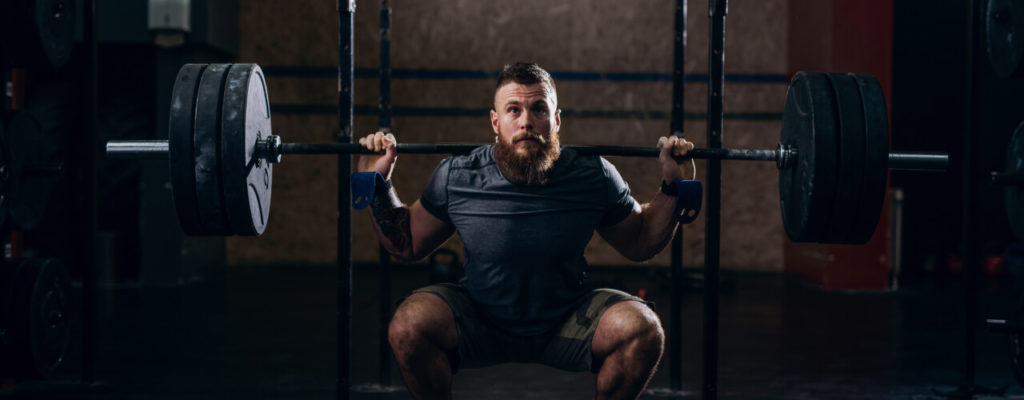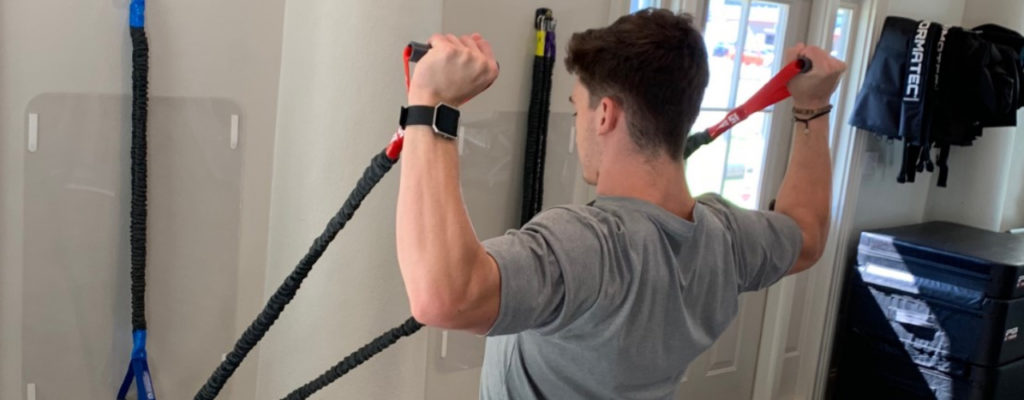If you’re an athlete or someone who enjoys copious amounts of exercise, you need to maintain a high fitness level. This requires relying on strong core muscles to stabilize our bodies so that we can perform to the best of our ability. One of the primary exercises to strengthen the core is the squat.
This seems like a pretty typical and easy exercise, but in order to perfect it, athletes must improve their form. For squats, this means reducing forward lean, getting the thighs as close to a horizontal position as they can, and keeping the hips at or below knee level. What happens to the feet during this exercise is a matter of debate. Some people think the feet should be flat on the ground. Others believe the heel should be slightly elevated. Those who believe in elevating the heel often choose running or weightlifting shoes.
Read on to learn more about the effects of using weightlifting shoes while squatting!
What Are The Differences Between Weightlifting Shoes and Running Shoes?
Running shoes and weightlifting shoes are two different things. At first glance, weightlifting shoes appear to be the better choice. Most weightlifting shoes come with a lateral stability that running shoes don’t offer, thanks to a wider base and differences in construction, like a less flexible midsole. Running shoes are also cushioned, and absorb energy when exercising. If you lift weights, you want to redirect as much energy as possible during the movement vertically.
Don’t use your running or other athletic shoes for lifting purposes. The ideal lifting shoe should be hard with a raised heel, as this comes in handy with exercises such as squats and deadlifts. You don’t need as much arch support when weightlifting, either.
The differences in cushioning, shape, and construction between weightlifting shoes and other kinds of footwear produce a different result when wearing the weightlifting shoes. Scientific studies can show exactly what kinematic differences will manifest when wearing either type of shoe.
What Happens When You Wear Weightlifting Shoes During Squats?
A study conducted by three researchers at the University of Northern Colorado observed the differences when fit, college-aged males performed repetitions of squats at 60% of their maximum ability. The study participants randomly switched between running shoes and an unnamed brand of weightlifting shoes. The researchers observed the range of motion (ROM), trunk displacement and ankle flexibility.
The weightlifting shoes made a difference with ankle flexion, which was expected due to the lifted position of the heel in weightlifting shoes. This meant it was easier for the study participants to maintain proper squat form during the exercise. Their thighs and hips remained vertical and there was less leaning forward. The knees moved over the toes more easily, which also promoted better form and performance.
The weightlifting shoes also produced less displacement in the torso region than the running shoes did. The athletes exhibited much less forward lean during the exercise and were able to redirect the energy upward. The researchers surmised this was due to less stress on the lower back.
The participants in the study stated they thought it was easier to perform squats in the weightlifting shoes than in the running shoes as well. This may have been due to the reduced stress on the lower back or through some other factors, such as the mental conditioning of being told they were using shoes specifically for weightlifting rather than for running.
To Wear Weightlifting Shoes Or Not….
Weightlifting shoes may not be for you if you’re a runner, but if you spend a lot of time in the gym with barbells and the like, it’s probably a good idea to consider getting a pair! If you’re just starting out, it may be even more beneficial to wear shoes with less heel lift so you can focus on proper form. For strength athletes or powerlifters, weightlifting shoes may help maintain form during heavy lifting or competition.
Proper form when executing squats will help prevent injury. The study results suggest that the weightlifting shoes promote better form, and should then help prevent injury. Athletes at any level of experience can benefit from this aspect of wearing weightlifting shoes while performing squats.
If you aren’t quite sure what kind of shoes would be best for your level of physical activity, no problem. Contact our office today. One of our experts in physical therapy will be able to assess your form, ask questions about the kinds of sports or athletic activity you participate in, and make an educated suggestion about what type of footwear would be best suited to your needs!


